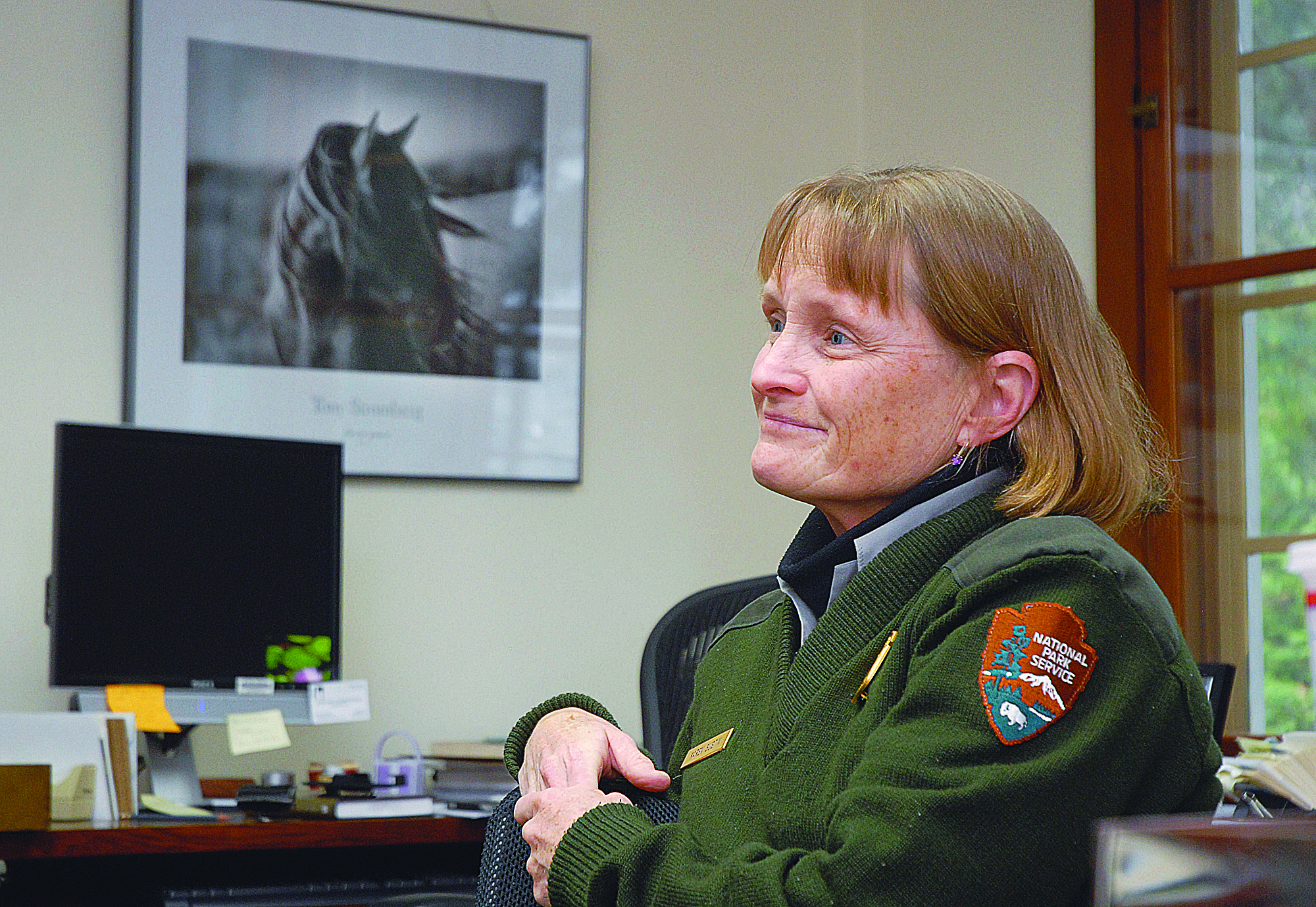PORT ANGELES — On her first day as Olympic National Park superintendent fewer than four years ago, Karen Gustin signed an agreement she said she had no part in writing but much to do with enacting:
A pact between the park and eight area tribes that pledged to keep open lines of communication.
The memo of understanding was signed by the Quileute, Lower Elwha Klallam, Jamestown S’Klallam, Quinault, Hoh, Makah, Port Gamble S’Klallam and Skokomish tribes.
Its signing July 10, 2008, set a fast-paced tone right from the start for Gustin’s brief though busy tenure as the park’s 14th superintendent, a stint that ends today with her retirement from the National Park Service at the age of 55.
Deputy Superintendent Todd Suess, 46, will be acting superintendent and said this week he will apply for Gustin’s position.
As for Gustin, she said she and her family will move to Lexington, Ky., to indulge her lifelong love of horses in the “The Horse Capital of the World” and to be closer to her daughter, Keely, herself a freshman equine business management student at the University of Kentucky.
The memo of understanding Gustin signed her first day of work in Port Angeles provided a context for the cooperation that resulted in President Barack Obama signing legislation Monday regarding the Quileute tribe’s flood-prone, 1-square-mile reservation at LaPush, Gustin said.
The legislation transferred 785 acres of safer, higher-elevation parkland to the tribe in return for public access through tribal lands to hugely popular Rialto and Second beaches on the Washington coast.
“[The memo] served as an umbrella framework for us to move forward,” Gustin said.
Gustin — who earned about $130,000 a year, was responsible for up to 300 employees and managed a $12 million-$13 million annual budget — said she does not expect her permanent replacement to be named for at least six months.
By then, she will be long gone.
In mid-March, Gustin will move to the rolling hills of Kentucky.
Joining her after the school year is over will be her martial arts-loving high school son, Ross, a sophomore on the verge of getting his black belt in Taekwondo, and her husband, Grant, a retired contractor.
The second woman superintendent in Olympic National Park history said her 55th birthday last September got her thinking about her future.
At 55, she could receive full retirement benefits because she had more than 30 years of federal government service — three with the National Forest Service and 28 with the National Park Service.
“I thought now maybe is the time,” she said, sitting in her second-floor office at the park’s rustic, 71-year-old headquarters on Park Avenue in Port Angeles.
“I was kind of reaching that threshold,” Gustin said.
“There are opportunities I might want to take advantage of, and I don’t want to wait until I’m 90 to do it.
“I still have a lot of energy, a lot of interests,” she said, adding she wants to do “anything that has to do with horses.”
Why horses?
“I tend to be pretty fast-paced, and they taught me to slow down and be in the moment,” she said.
“You can’t concentrate on anything but riding when you’re on a horse.”
Gustin worked for the Forest Service before she began working for the Park Service in 1983 as a seasonal interpreter in Death Valley National Monument, which became a national park in 1994.
She was a superintendent at various National Park Service enclaves, including Big Cypress National Preserve in Ochopee, Fla., for three years before moving to Port Angeles.
On July 24, 2008, after just two weeks on the job, she vowed to get out of the office as much as possible, telling the Peninsula Daily News in an interview: “I don’t care too much about the box,” meaning the confines of park headquarters.
While on the North Olympic Peninsula, she went on her first mule-pack expedition, an 18-mile round trip to the park’s guard station on the Hoh River, and took numerous day hikes, including at Cape Alava and Lake Ozette, Gustin said.
But the largest dam removal project in U.S. history put a crimp in her plans to get away from the office.
Gustin has presided over the beginning of the Elwha River Restoration Project, a National Park Service effort to remove the Glines Canyon and Elwha dams with the weighty goal of restoring the Elwha River’s sorely depleted salmon run.
The extent of preparations leading up to the beginning of demolition of the dams last September — a signature event in the $325 million restoration project — crimped her style, she said.
Still, “I tried to get outside as much as I could,” Gustin said, mussing about the verdant richness of her soon-to-be Kentucky home as well as the alpine beauty of the North Olympic Peninsula.
“There’s no reason to stay inside all the time around here,” Gustin said.
________
Senior Staff Writer Paul Gottlieb can be reached at 360-417-3536 or at paul.gottlieb@peninsuladailynews.com.
